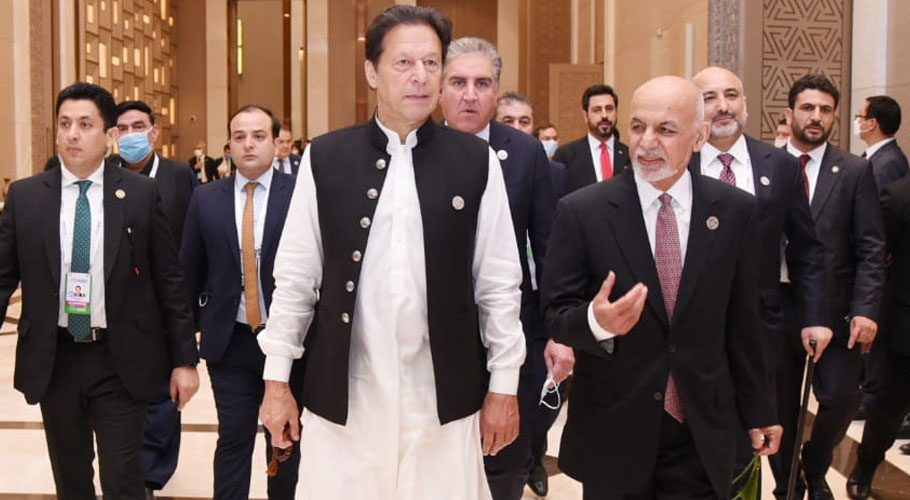Amid rising violence in Afghanistan as the Taliban rapidly advancing soon after the US forces pull-out, Pakistan was set to host a conference on the crisis in the war-torn country.
Several important members of Afghan leadership including former President Karzai were invited to the conference. The Afghan Taliban, however, was not invited to the moot and Pakistan was expected to host another meeting with them.
As Afghanistan is fast descending into chaos, Pakistan is worried about the fallout of another civil war and has reached out to key regional players in the hope of reaching a consensus to prevent another disaster.
Pakistan is now looking for alternative options to prevent a civil war in Afghanistan. The United States would certainly no longer play a constructive role in bringing about peace and stability in Afghanistan.
This is evident from the President Joe Biden’s recent press conference who clearly stated that it was up to the people of Afghanistan to decide their future. The US wants to focus on tackling China and Russia and would leave Afghanistan without rebuilding the nation.
The primary objective of the US is to ensure its troop withdrawal without any problem and seeking peace or political solution is no more a priority of the US. This situation has placed Pakistan in a difficult scenario as the civil war in Afghanistan will have grave implications for the country. Pakistan is now pinning hopes on other regional players including China, Russia, Iran and Central Asian States for a political settlement.
China can replace the role of the US and encourage all Afghan parties for a peace deal. Russia and Iran, which now maintain contacts with the Afghan Taliban, can also play a major role in preventing unrest in Afghanistan.
Pakistan had decided to host a three-day conference to seek a political consensus on the Afghan endgame and make the long-stalled peace process move forward. But just a day before it was set to commence, the conference was as postponed after the Afghan government refused to send its delegation.
According to reports, the meeting was postponed after Prime Minister Imran Khan and President Ashraf Ghani met in Uzbekistan on the sidelines of the regional connectivity summit. Director General Inter Services Intelligence (ISI) Lt General Faiz Hameed was also present in the meeting.
Afghan President Ghani requested for the postponement and sought more time for the preparation. However, it has been reported that he was irked by Prime Minister Imran Khan’s comment earlier while addressing the summit.
Prime Minister Imran had said it was extremely unfair to blame Pakistan for the situation in Afghanistan, and that said he was ‘highly disappointed’ by Ashraf Ghani’s comment.
He reiterated his stance that Pakistan’s influence over the Afghan Taliban diminished after the US announced a date for troop’s withdrawal. He said Pakistan used all available means short of military action to bring the Afghan Taliban to the negotiating table.
The postponement is a huge disappointment for Pakistan and even other Afghan leaders who had confirmed their participation. Time is certainly running out and urgent steps are needed to seek a political settlement.
There were many proposals on the table including a follow-up conference to be attended by Afghan Taliban. Due to the fast-changing scenario in Afghanistan, the conference may lose its efficacy if it keeps on being delayed beyond a certain time.
The Taliban are literally at Pakistan’s borders and have taken control of the Spin Boldak border crossing. Afghan security forces have offered no resistance even though they claimed to retake the crossing. Afghan vice-president made serious allegations that Pakistan threatened airstrikes to support the Taliban retain the vital border crossing.
Nevertheless, Pakistan is committed to the peace efforts as any unrest in the neighbouring country would have huge implications. Afghan officials should realise the importance and hold the conference to reach an amicable solution as the clock keeps ticking.































